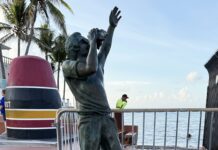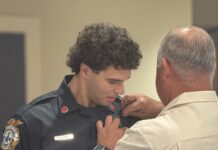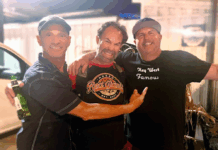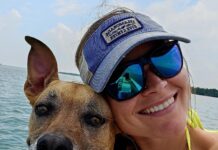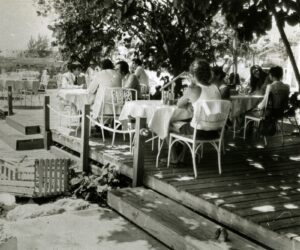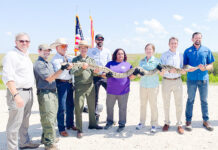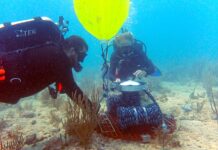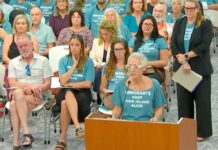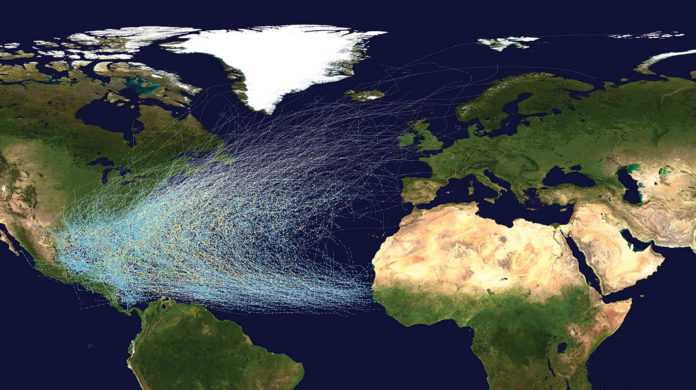
Hurricanes aren’t human.
Despite our first-name basis, the behemoth storms aren’t comic book villains seeking world domination. They’re not rubbing their hands together in a secret lair, laughing maniacally and targeting certain cities for annihilation.
But it’s easy to view these freaks of nature with a bit of anthropomorphism, assigning them human characteristics and personalities.
Longtime Keys residents, veterans of several storms and practiced in evacuations, describe various hurricanes as unwelcome intruders who came barreling into town and left devastation in their wake.
Some of us, at various times, are even guilty of blaming Africa, an entire continent, for spawning hurricanes off their coast and somehow “sending” them our way, across the Atlantic toward the Keys, Carolinas and Caribbean.
We’d watch The Weather Channel, and later, all manner of weather websites, watching the fierce radar blob make its trans-Atlantic crossing, as if stalking us.
But then things seemed to change. In the past few years, more storms seem to simply appear, fully formed, in the Gulf of Mexico or the Caribbean Sea.
Are we going crazy? Were we imagining this change in a storm’s source and course?
Never ones to trust our own memory, or scientific skills, the Keys Weekly brought our question to someone who actually knows, and understands better than anyone, that hurricanes aren’t human.
Jon Rizzo, warning coordination meteorologist for the National Weather Service in Key West, reassured us that we weren’t misremembering.
“It is true,” Rizzo said. “In the last few years, more of these storms have developed and formed in the western side of the Atlantic. But these patterns don’t typically last long.”
Conversely, Hurricane Irma in 2017, “was a long-track storm,” Rizzo said. “And I’d say within the next year or two, we’ll start seeing them cross the Atlantic again.”
What about the 2022 Atlantic hurricane season forecast?
Rizzo explained that the first forecasts each year of a storm season’s volatility often come from researchers at Colorado State University in the first week of April.
“Our NOAA Outlook doesn’t come out until the last full week of May,” he said, adding that the data NOAA scientists review for their seasonal forecast “really requires waiting until May to gauge some of the data points NOAA uses, such as the air pressure in the Western Caribbean and pre-season rainfall in West Africa.”
“We’ve been in a La Nina pattern for two winters now, which looks like it’ll last until early summer,” Rizzo said, adding that La Nina has been linked to less wind shear, which can contribute to the development of storms.
“With less shear in La Nina, you’ve removed the negative factor that tends to limit those strong storms. So this coming season, although our NOAA Outlook has not been finalized, we could be looking at a somewhat above-normal season.”
Still, Rizzo added, none of the seasonal forecasts for an active or slow hurricane season should be factored into someone’s hurricane preparedness plans.
“That should never factor into how or whether we prepare for storms,” he said.
“Let’s put it this way, I’ve never seen a season with ZERO storms,” Rizzo said.
Keep in mind, he warned, 1992 was a ‘below-normal’ season.
“And we all know what happened in 1992. Hurricane Andrew was the first named storm of the season, and we were deep into August when that happened.”

